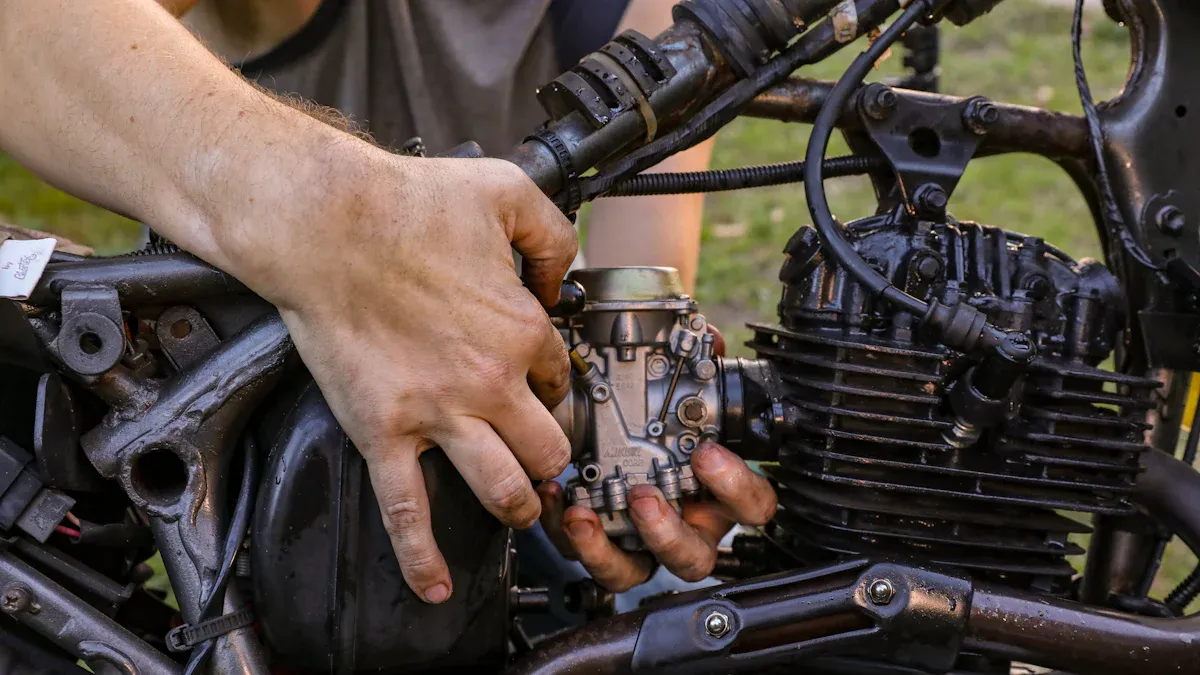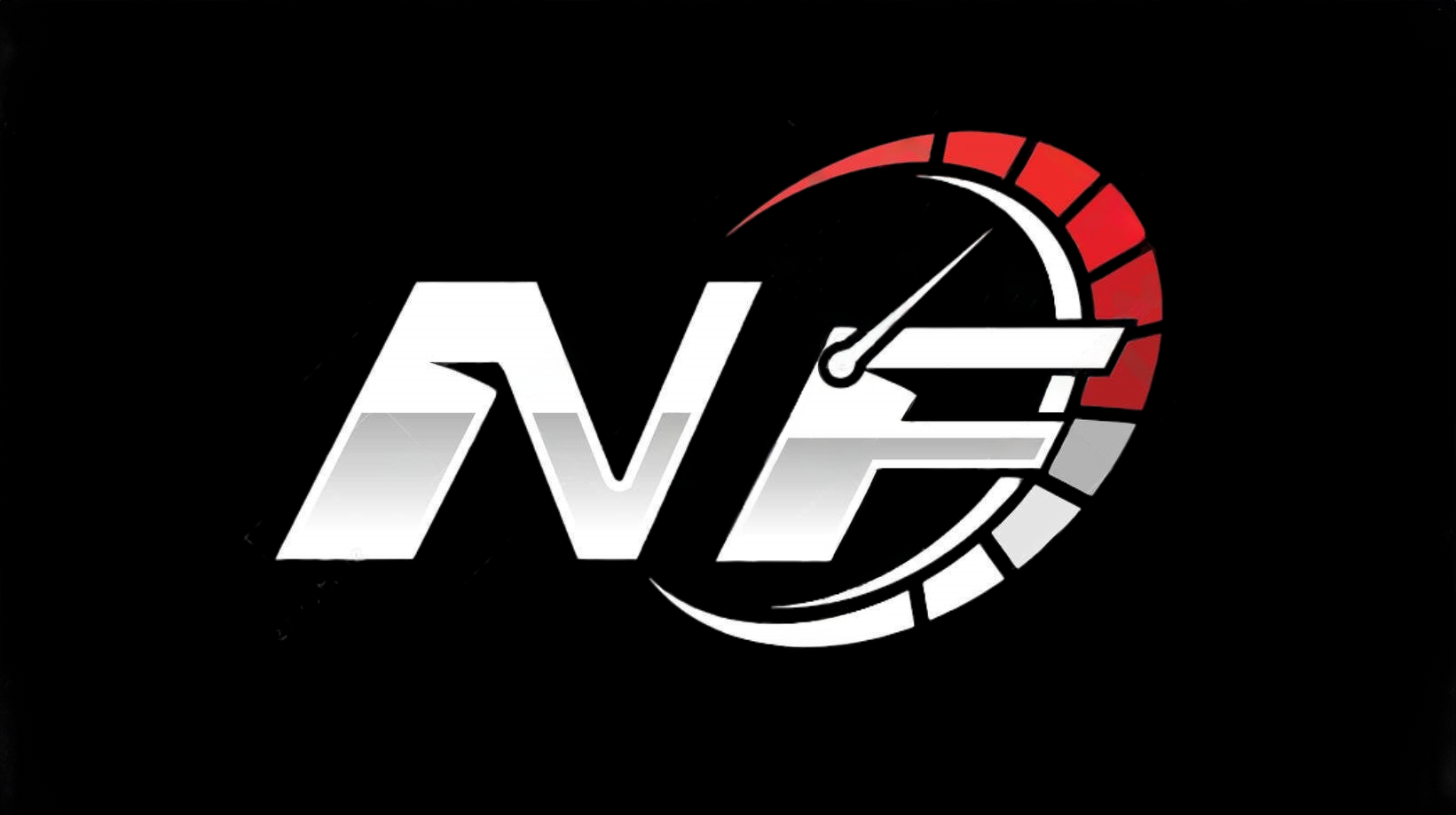What Motorcycle Repair Tips Save You Money

Taking care of your motorcycle doesn’t need to cost much. With smart habits, you can save money and keep it running well. Regular motorcycle repair and maintenance are very important. It can cut surprise repair costs by 20%. Checking for problems and doing safety checks saves time too. This can reduce delays by 15-20%. Small efforts can have a big impact. Staying prepared helps avoid problems and gives you a safer ride.
Key Takeaways
Doing regular upkeep, like oil changes, avoids expensive fixes and keeps your bike working well.
Look at tire pressure and tread every week for safety and better gas mileage.
Learn simple fixes, like replacing air filters and spark plugs, to save cash and feel more skilled.
Buy wisely by checking prices online and picking good parts to improve your bike.
Join repair groups to learn from others and grow your DIY skills.
Preventative Maintenance for Your Motorcycle

Taking care of your motorcycle early saves money. Fixing small issues stops big problems later. This keeps your motorcycle working well for a long time. Here are three important maintenance tasks you should always do.
Regular Oil Changes
Changing the oil often helps your engine stay healthy. Old oil gets dirty and can damage the engine. Fresh oil keeps it smooth and working well. Most motorcycles need an oil change every 3,000 to 5,000 miles. Check your manual for the exact number.
Tip: Use good-quality oil that fits your motorcycle. It costs more now but saves on big repairs later.
Oil changes also help you find problems early. If you see metal bits in the oil, it could mean engine trouble. Fixing it early saves money and stress.
Checking Tire Pressure and Tread
Tires are the only part touching the road. Keeping them in good shape is very important. Low tire pressure makes handling harder and wastes gas. Too much air wears tires unevenly. Use a gauge to check pressure weekly and adjust as needed.
Look at the tread too. Worn tires don’t grip well, especially on wet roads. Use a penny to check tread depth. If you see all of Lincoln’s head, replace the tire.
Did you know? Checking tires often saves time and money. Over 60% of businesses say this kind of care improves performance and cuts costs.
Cleaning and Lubricating the Chain
The chain moves power from the engine to the wheel. Keeping it clean and oiled is very important. Dirt makes the chain wear out faster. A dry chain causes friction and slows the bike.
Clean the chain with a brush and degreaser. Let it dry, then add chain oil. This protects it from rust and dirt. Some oils even make cleaning easier later.
Pro Tip: Oiling the chain often makes it last longer. It also stops small problems from becoming big ones. A good chain keeps your motorcycle safe and running well.
Doing these easy steps saves repair money and gives a better ride. Taking care of your motorcycle early means less worry and more fun on the road.
DIY Motorcycle Repair and Maintenance
You don’t always need a repair shop for your motorcycle. With basic tools and some knowledge, you can fix many things yourself. This saves money and helps you learn about your bike. Let’s look at what tools you need and what repairs you can do.
Tools Every Motorcycle Owner Should Have
The right tools make fixing your motorcycle easier. Some tools are for simple tasks, while others help with harder repairs. Here’s a helpful table:
Tool Type | Purpose |
|---|---|
Lifting Equipment | Holds the motorcycle safely during repairs. |
Specialized Wrenches | Fits both metric and standard bolts. |
Torque Wrenches | Tightens bolts to the correct level. |
Diagnostic Equipment | Finds electronic problems. |
Electrical Testing Gear | Checks electrical issues in modern bikes. |
Tire Mounting Machines | Helps with tire changes and balancing. |
Cylinder Honing Tools | Keeps engine cylinders working well. |
Valve Spring Compressors | Helps remove and install valve springs. |
Bearing Pullers | Removes bearings without damage. |
Tip: Start with basic tools like wrenches and a torque wrench. Add advanced tools as you gain experience.
Easy Repairs You Can Do Yourself
You don’t need to be an expert to fix small issues. Many repairs are simple and need only a few tools. Here are some examples:
Replacing the Air Filter: A dirty air filter slows the engine. Changing it is quick and keeps your bike running well.
Changing Spark Plugs: Old spark plugs make starting hard. New ones improve fuel use and ignition.
Fixing a Loose Chain: A loose chain reduces power. Tightening it takes just a few minutes.
Replacing Brake Pads: Worn brake pads make stopping unsafe. New ones keep you safe on the road.
Pro Tip: Always check your motorcycle’s manual before fixing anything. It gives clear steps and safety advice.
When to Seek Help from a Motorcycle Repair Shop
DIY repairs save money, but some problems need experts. Complicated issues or those needing special tools should go to a shop. Here’s a guide to help you decide:
Criteria | Explanation |
|---|---|
Convenience | Shops save time and effort, especially for big repairs. |
Transparency in Pricing | Good shops give clear prices to avoid surprises. |
Quality of Parts | Experts suggest the best parts, either OEM or aftermarket. |
Technician Skill Levels | Skilled workers fix hard problems quickly and well. |
Efficiency | Shops work faster, cutting labor costs. |
Economies of Scale | Big shops may offer discounts, making repairs cheaper. |
Note: If you’re unsure or lack tools, it’s safer and cheaper to visit a shop.
By mixing DIY fixes with professional help, you can keep your motorcycle in great shape. Start small, learn more, and enjoy taking care of your bike.
Smart Shopping for Motorcycle Parts and Accessories
Buying motorcycle parts smartly saves money and boosts performance. Focus on good quality, compare prices, and skip unneeded items. This helps you stay within budget and keep your bike in great condition.
Buying Quality Aftermarket Parts
Aftermarket parts can improve your bike without costing too much. Good-quality parts fix specific problems your motorcycle might have. For example, digital ignition systems make engines more reliable. Performance pistons or bigger valves add power and help engines last longer. These upgrades improve how your bike works and prevent future issues.
Choose aftermarket parts from trusted brands like Nicefairings. They offer custom motorcycle fairings that look great and protect your bike. Spending more on good parts now means fewer repairs later.
Tip: Read reviews and check if parts fit your bike before buying.
Comparing Prices Online
Online shopping gives you many choices and better prices. Comparing prices on different websites can save you 15-20%. Some stores also give discounts on shipping or bundles, saving even more. Suppliers with well-managed stock can cut costs by up to 30%.
Take time to check different sites. Look for sales or special deals to save money. Don’t forget to include shipping costs and delivery times when deciding.
Pro Tip: Save your favorite online stores and sign up for sale alerts.
Avoiding Unnecessary Upgrades
Flashy accessories or expensive upgrades can be tempting. But not all upgrades are worth the money. Focus on items that improve safety, performance, or durability. For example, smart helmets or navigation systems are useful and make riding better. Cosmetic upgrades that don’t add value may not be worth it.
Stick to a budget and buy only what your bike really needs. This way, you spend wisely and avoid wasting money.
Did you know? The market for motorcycle accessories is growing, especially for safety gear and smart tech. These items make riding safer and more fun.
Smart shopping isn’t just about saving money. It’s about making smart choices that help you and your bike in the long run.
Building Skills for Successful Motorcycle Repair
Learning from Repair Manuals
Repair manuals are like guides for motorcycle owners. They show steps to find and fix problems. If your bike stops working often, the manual can help. It might tell you to check the fuel filter or lines for clogs. Following these steps can save you money on repair shop visits.
You can also learn simple maintenance from manuals. Tasks like changing oil, fixing the chain, or replacing brake pads become easier with instructions. Buying a manual for your bike and good tools is worth it. You’ll save money and feel more confident fixing your motorcycle.
Tip: Keep your manual close when working on your bike. It’s a helpful tool for learning and solving problems.
Watching Online Tutorials
Online videos are great for learning motorcycle repairs. Websites like YouTube have videos on fixing spark plugs or finding electrical problems. Watching these videos shows you how to do repairs step by step.
Many video creators are skilled mechanics who share useful tips. For example, they might teach you how to use a torque wrench or clean your bike’s chain properly. These videos are great for people who learn by watching and let you practice at your own speed.
Pro Tip: Save your favorite channels and make a playlist. This way, you can quickly find lessons when you need them.
Joining Motorcycle Repair Communities
Repair groups are more than just online chats; they’re places to learn. Joining these groups connects you with other motorcycle fans who’ve had similar problems. Members often share tips on tasks like tuning engines or fixing brakes.
These groups also help you feel sure about your repairs. If you’re unsure about something, you can ask for advice. Experienced members will guide you, boosting your confidence and skills.
Benefits of Joining Communities | Insights |
|---|---|
Foster self-sufficiency | Depend less on repair shops and save money. |
Engage in socially validated repair practices | Feel confident and improve your techniques. |
Did you know? Many expert mechanics started by joining repair groups. It’s a great way to learn and become a skilled DIY motorcycle fixer.
Saving money on your motorcycle is easy with simple steps. Do regular maintenance to avoid costly problems later. Fix small issues yourself to save repair costs. Shop wisely for parts to get good deals. Taking care of your bike keeps it running well and safe. Learning these skills makes you feel confident and closer to your motorcycle. Start with small tasks, stay consistent, and enjoy a smooth ride.
FAQ
What are the benefits of doing your own motorcycle repairs?
DIY repairs save you money and teach you about your bike. You’ll feel more confident handling small issues. Plus, you’ll avoid frequent trips to a motorcycle repair shop for minor fixes. It’s a great way to bond with your motorcycle and keep it in top shape.
What tools should you always carry on your motorcycle?
Carry a basic toolkit with wrenches, a tire repair kit, and a multi-tool. These essentials help you handle emergencies on the road. If you’re far from a motorcycle repair shop, these tools can save the day. A portable air pump is also a smart addition.
What’s the best way to find a reliable motorcycle repair shop?
Ask fellow riders for recommendations or check online reviews. Look for shops with skilled technicians and clear pricing. A good motorcycle repair shop will explain repairs and use quality parts. Visiting a trusted shop ensures your bike gets the care it needs.
What common mistakes should you avoid when repairing your motorcycle?
Don’t skip reading the manual or using the right tools. Avoid over-tightening bolts or ignoring safety checks. If you’re unsure, visit a motorcycle repair shop. Mistakes can lead to bigger problems, so take your time and follow proper steps.
What’s the most important maintenance task for your motorcycle?
Regular oil changes are crucial. They keep your engine running smoothly and prevent costly damage. If you’re not comfortable doing it yourself, a motorcycle repair shop can handle it. Clean oil ensures your bike stays reliable and performs well.
See Also
Smart Strategies to Reduce Motorcycle Fairing Costs Now
Best Methods for Finding Affordable Motorcycle Fairings
Key Advice for Crafting Your Ideal Motorcycle

